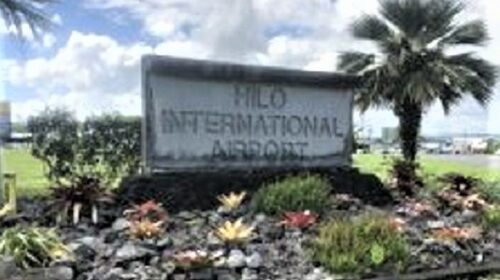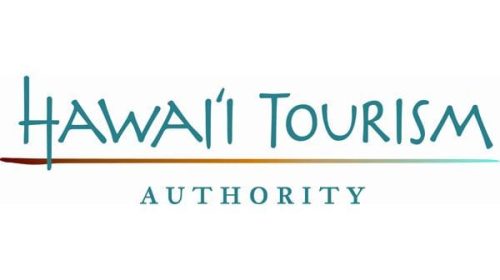World Press Freedom Day: Fake news for Hawaii Governor Ige?
In Hawaii, Governor Ige is not allowing independent media like eTurboNews or Hawaii News Online to ask questions and attend media events. In Washington DC, President Trump often uses media outlets including the New York Times, Washington Post, or CNN.
Critical questions are now allowed. Ironically, in the United Nations System, the World Tourism Organization (UNWTO) had been trying to silence Hawaii based eTurboNews with threats, alleged mafia-style cyber-attacks, and legal papers ever since Zurab Pololikashvili from the country Georgia took office as Secretary-General in 2018.
The United Nations designated May 3 as World Press Freedom Day in order to raise awareness of the important role independent media plays in civil society while reminding governments of the “need to respect their commitment to upholding press freedom.” The UN characterizes it as a “day of reflection among media professionals about issues of press freedom and professional ethics.”
In Washington, in a statement marking the day, US Secretary of State Mike Pompeo spoke of independent media as “vital to free, prosperous and secure democratic societies.”
I couldn’t agree more. And I fear we are heading toward a future dangerously lacking these irreplaceable tenets of democracy.
As the secretary alluded to, there are journalists languishing in prisons in – but to name a few – Egypt, Yemen, Pakistan, Turkey, Thailand, and Venezuela for the “crime” of performing their duties as members of the Fourth Estate. As I write, journalists from The New York Times, The Washington Post, and The Wall Street Journal have been kicked out of China as they tried to secure answers to the origins of the pandemic that has brought so much chaos, death, and disruption to the world.
In a tragic irony, World Press Freedom Day coincided with the decision by a Pakistani court to release those believed to have masterminded the horrific murder of The Wall Street Journal’s Daniel Pearl.
This day is extremely important to me personally as I have spent my life fighting for independent journalism, teaching scores of young people the critical importance of an unfettered press, and the institution of journalism. Sadly, our agency, The Media Line, needs no reminder beyond the memory of our brave and brilliant colleague, Steven Sotloff, who contributed inspired reporting from the Middle East with full knowledge of how the dangers of his beloved profession placed him in the crosshairs of a rising group of maniacal killers to be known as ISIS and ultimately responsible for his barbaric slaying.
Steven’s haunting words to us in July 2013 presage his growing downheartedness at the reticence to maximize the value of truths uncovered by Syrian-based journalists because the chain of communication was breaking down.
“As the international media is fixated on the struggle between the military and the Muslim Brotherhood in Egypt, few reporters are focusing on Syria. But a spate of kidnappings of foreign journalists in Syria has made the country a mini-Iraq that few want to venture into. ‘It is dangerous and getting worse by the day,’ says a correspondent for a major Western publication. ‘If no one is asking for articles, why should we risk it?’”
Just yesterday, I was interviewing mentorship candidates for The Media Line’s Press and Policy Student Program who were interested in training remotely as COVID-19 has left universities shuttered. A student from a prestigious university who was interested in the journalism track thought that you “just begin writing a story,” – a “Eureka moment” for the program founder. A lesson learned before teaching a word: If the world is not retaught what journalism is meant to be – a craft, a specialty that requires learning, research, and skill – then we journalists have failed in our most basic assignment: communicating who we are.
We invite our readers to view our own effort to make the case for “Bringing Back Journalism” said Felice Friedson from Media Line
My dear colleague, the brilliant thinker Dr. Nadia Al-Sakkaf, former publisher of The Yemen Times, told me the trade is shifting and is becoming everybody’s business. Cyberspace is becoming the main platform for journalism, which is empowering in a way but has its drawbacks.
The instant connectivity and soundbite attention-grabbers are chipping away at the fundamental principles of our democratic values. The majority of Americans who can remember the heyday of the network nightly news programs and still spend hours dirtying their fingertips with an ink-staining copy of a morning newspaper understand this difference.
As we look to the horrors that befall journalists who stake their lives to get the story and get it right, we have to mourn the loss of many newspapers and media outlets that barely made it through the 2008 economic perils and again are facing layoffs and, yes, closures.
If the United States of America, the land of the free, cannot lead the way in funding the institution of journalism and strong media outlets, our journalists, whom we honor today, will have no recourse beyond the mega-shops peddling partisan political agendas untested by broad thought and diversity and known to our citizens in a variety of epithets from fake news to propaganda.
FELICE FRIEDSON is president and CEO of The Media Line News Agency. She is the creator of The Mideast Press Club, Press and Policy Student Program and programs of empowerment for women in Middle East jour.
eTurboNews: Ironically in the United Nations System the rule of press-freedom is a problem. The World Tourism Organization (UNWTO) had been discriminating against eTurboNews ever since the new secretary Zurab Pololikashvili took office in 2018.



